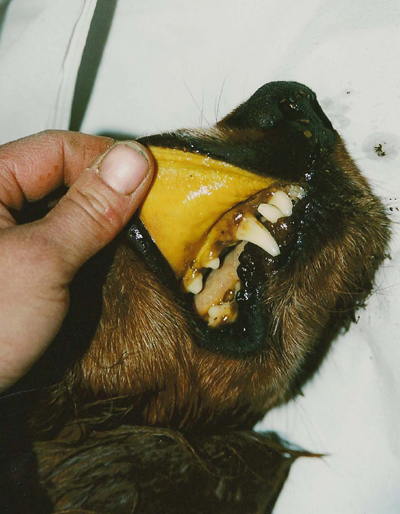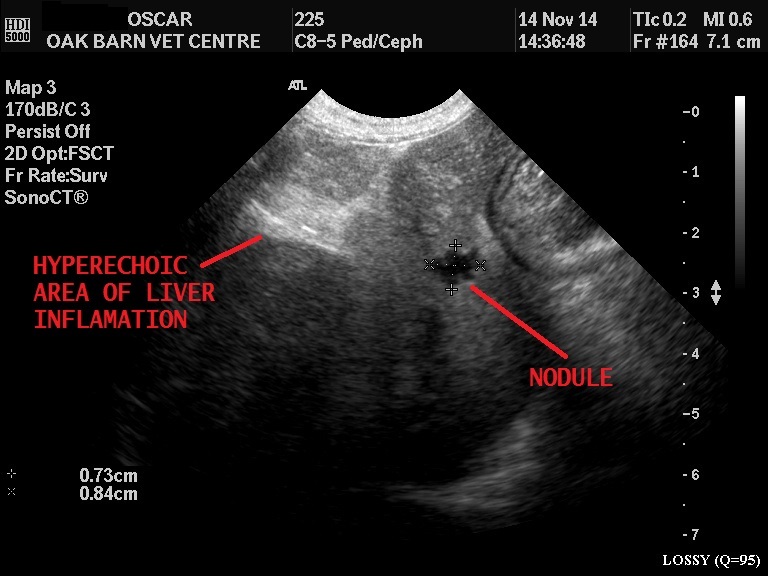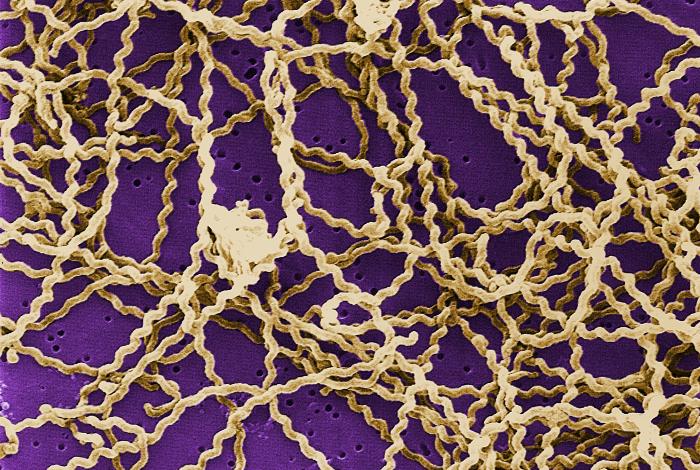Oscar, despite his handsome photograph, is a wiley 15 year old Jack Russell Terrier. Even though he is in retirement he still enjoys pottering around with the horses, investigating his local countryside and curling up for a cuddle in the warm!
During early November Oscar suddenly developed an upset stomach which responded quickly to the usual symptomatic treatment. However a few days later signs of illness returned with now a complete lack of appetite and regular vomiting. 
On examination poor Oscar had developed severe jaundice.
Jaundice is a yellow colouration of the skin, gums and whites of the eyes and can indicate problems with the liver and gall bladder as well as breakdown of red blood cells and anaemia.
In Oscar’s case the problem was with his liver and his in-house blood testing showed signs of a severe hepatitis, likely secondary to an infection.
Ultrasound scans revealed the odd nodule within his liver which is fairly normal for a dog of his age but in addition to these he had evidence of severe inflammation. The ultrasound image below shows abnormal bright white areas (the mottled greyer areas surrounding are bits of normal liver) An increase in echogenicity like this is an indication that the liver tissue is denser than is should be in this case due to inflammation. 
There are a number of diseases that can cause jaundice due to liver inflammation. Toxins, poisons, ascending bacterial infections from the gut and a nasty disease called Leptospirosis can all cause jaundice. Given Oscar's country lifestyle Leptospirosis was a real concern so urine and blood samples were rushed to the lab whilst pre-emptive treatment commenced.
 Leptospirosis is caused by a bacterial infection with little spiral shaped bacteria (called Leptospires) These bugs gain entry into the body via wounds or abrasions in the skin or via ingestion. These are tough bacteria that can survive for several weeks in the environment and are spread via infected urine. Rats, rodents and occasionally foxes tend to be the classic carriers of this life threatening disease.
Leptospirosis is caused by a bacterial infection with little spiral shaped bacteria (called Leptospires) These bugs gain entry into the body via wounds or abrasions in the skin or via ingestion. These are tough bacteria that can survive for several weeks in the environment and are spread via infected urine. Rats, rodents and occasionally foxes tend to be the classic carriers of this life threatening disease.
Leptospirosis not only affects dogs but can cause similar problem in people and is better known as Weils disease in humans.
Infections are often contracted after contact with standing water, such as in drainage ditches/ponds, high risk periods are found especially after periods of high rainfall. As we suspected Oscar's lab results confirmed that the poor boy did indeed have Leptospirosis. Due to the contagious nature of this disease both Oscar’s canine housemates were also tested but thankfully have produced negative results. Equally we are pleased to report all of Oscar's two legged friends are all fit and well!
Oscar initially underwent intensive treatment with a couple of day’s hospitalisation and intravenous fluids, antibiotics and liver support medications before he could be discharged to carry on his treatment at home. Thankfully his jaundice quickly resolved and in true rough-tough terrier style there is every chance that he will make a complete recovery.
Many owners often ask if it is necessary to vaccinate their animals when they are older. Patients such as Oscar highlight the necessity to vaccinate our pets against infectious diseases based on their lifestyle rather than their age.
As many of you know we have been offering all of our canine patients at Oak Barn a free upgrade to include the 'European' forms of Leptospirosis (type 3 and 4) as well as the routine UK forms (type 1 and 2) that we have always vaccinated against.
In Oscar's case he was fully vaccinated with his L2 (UK) vaccine but not the L4 form, he has never been abroad so his case highlights that our European strains of Leptospirosis are here in the UK to stay and all dogs should be vaccinated using L4 vaccines in future.




